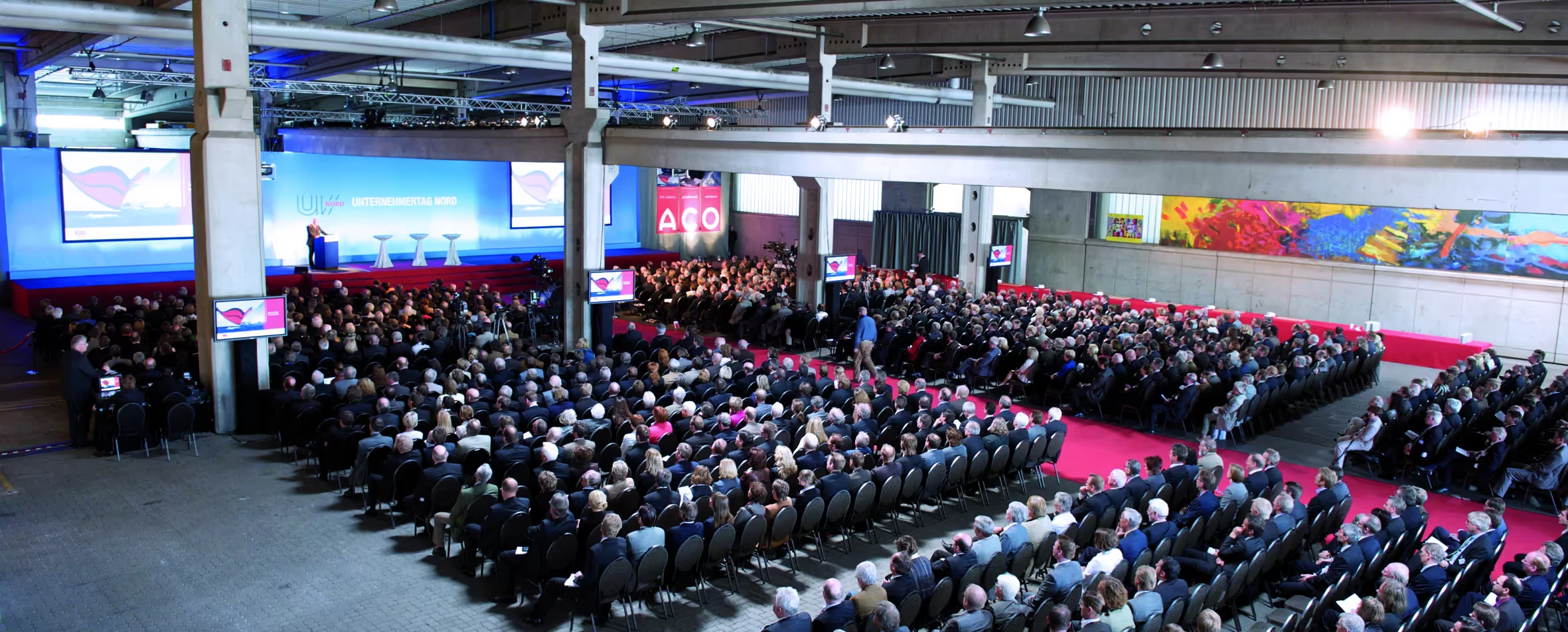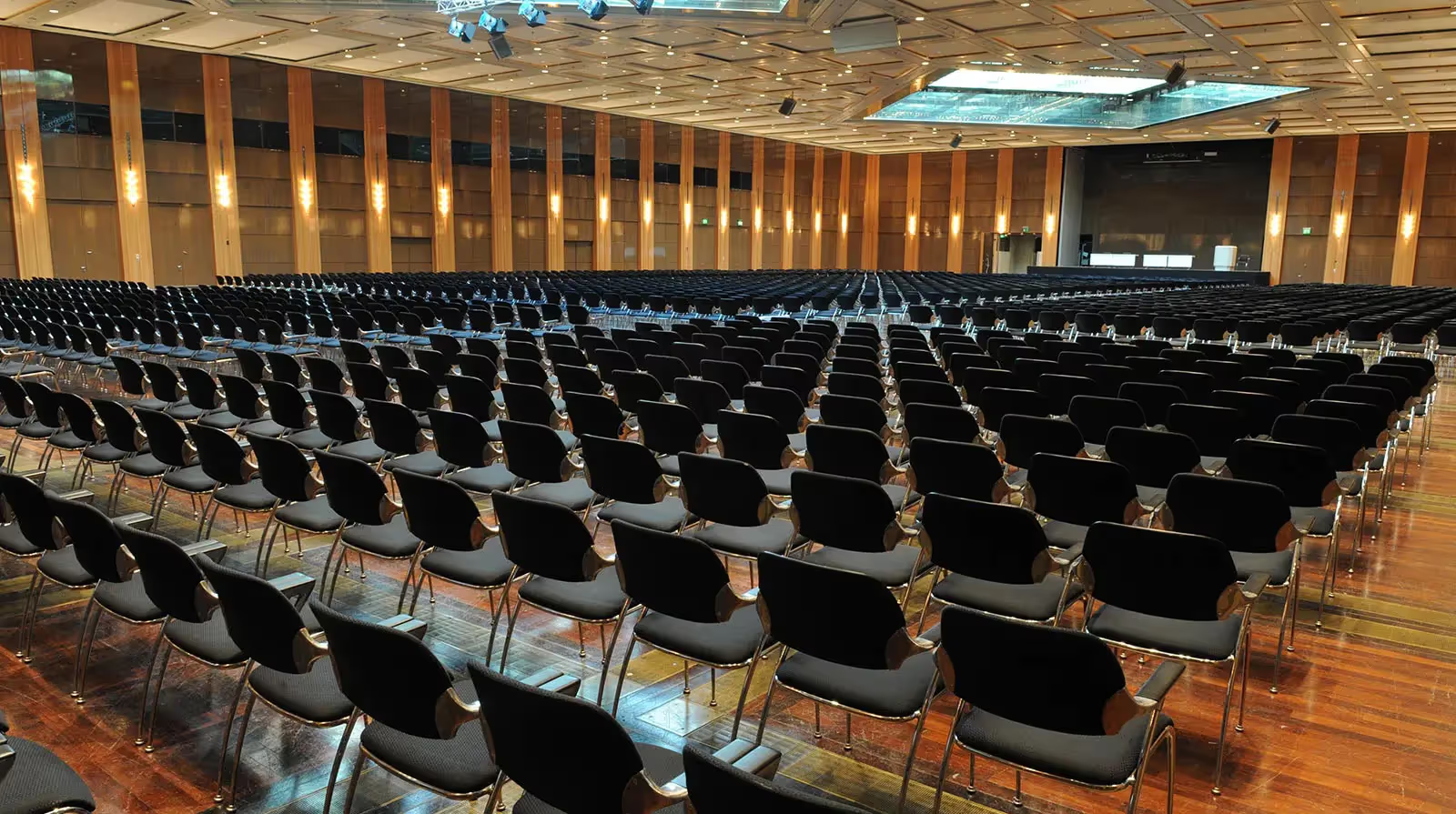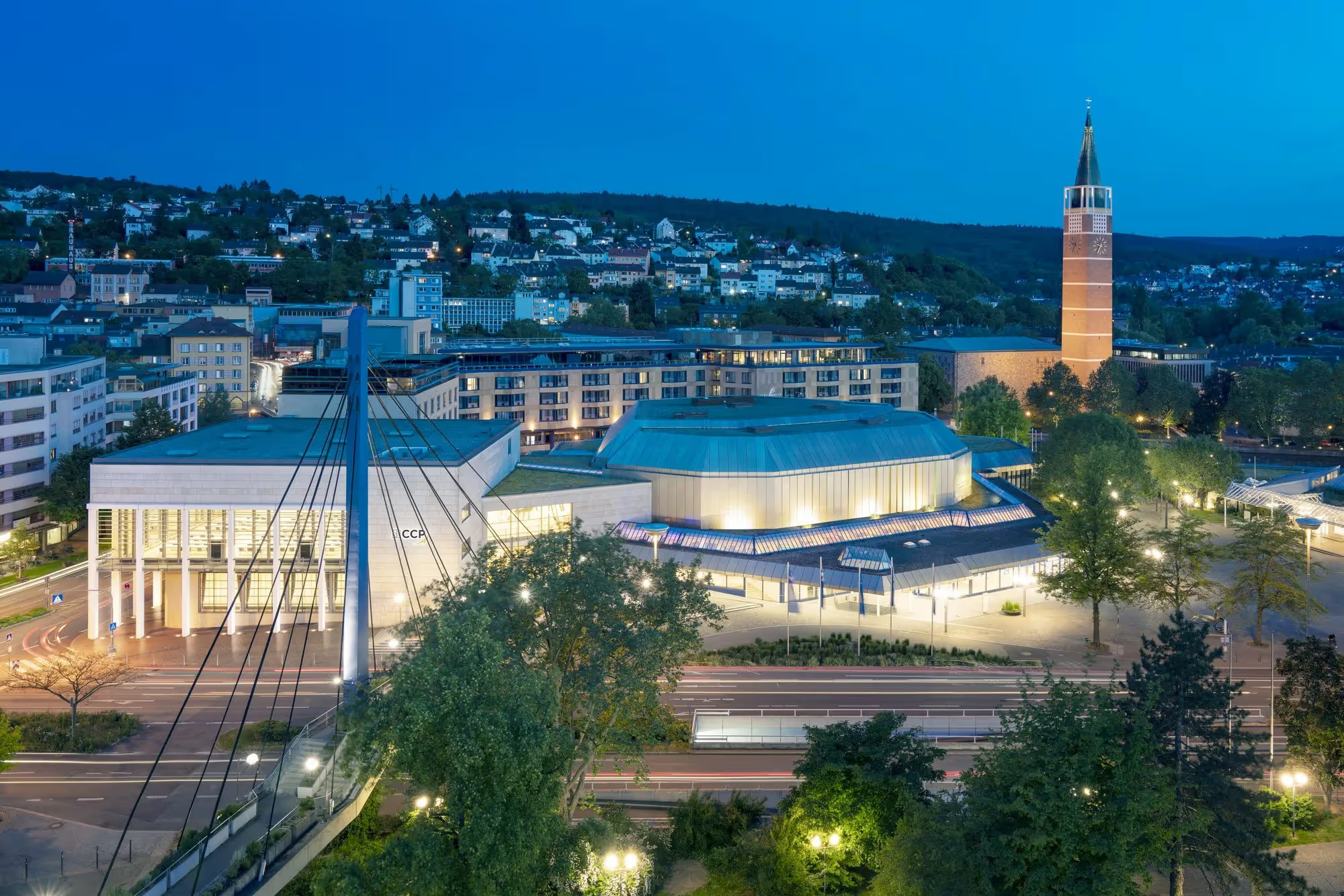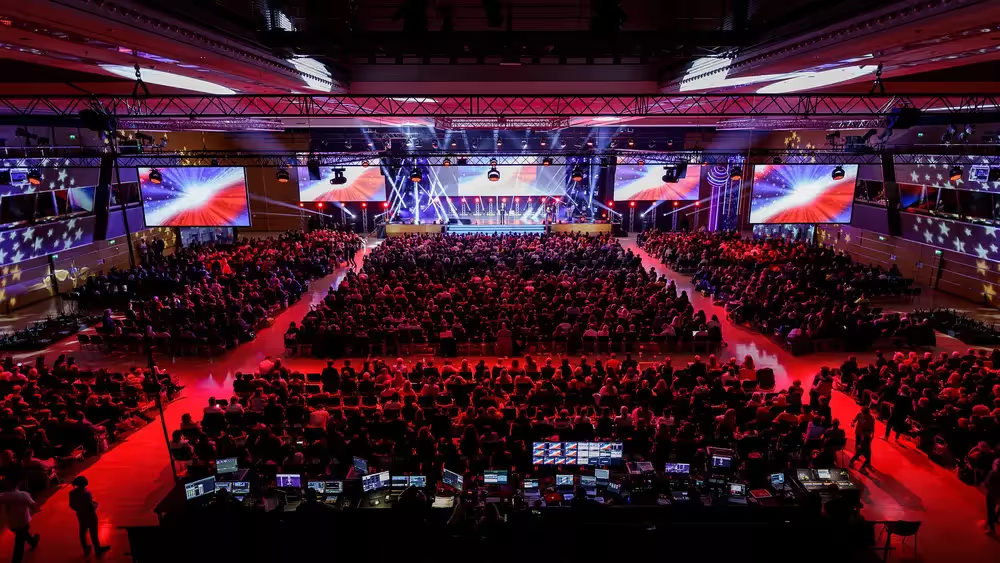Why does your event need its own event website?
A great event website allows attendees to find everything they need—fast—and register with ease. Yet many organisations underestimate its importance, choosing to manage events through their main corporate site. Depending on your event’s size and complexity, this can quickly become inefficient.
Here’s why:
- The average time a user spends on a website is 40–60 seconds (source). Within this brief period, potential attendees should be able to find the key event information and register for the event easily.
- Simultaneous access by several hundred or even thousands of visitors following the dispatch of an event invitation requires the website to have high availability.
- Promoting an event generates a shorter but more intense focus on your organisation. Therefore, a professional external appearance is essential.
- Events often have very specific requirements for registration processes—for example, limiting the number of places, offering special selection options, or managing waiting lists.
- Professional event marketing can only be optimised by collecting specific event-related data.
Comparison between standard event websites and custom development
There are different ways to create your own event website. Broadly speaking, one can distinguish between standard event websites, which are specifically designed to meet event requirements, and custom development of an event website, for example using a content management system (CMS) or even a complete redevelopment. The two approaches can be compared as follows:
| Standard event website |
Custom development |
| ✅ Created within minutes |
✅ Fully tailored to your own wishes and needs |
| ✅ Optimised for the specific performance demands of events |
✅ Usually easier integration into the existing company website |
| ✅ Existing functions for events such as agenda, speakers, guest list, registration logic |
❌ High cost and time investment for creation |
| ✅ Cost-effective |
❌ Specific event functions often only implementable with difficulty |
| ❌ Often limited possibilities for full customisation, but adaptable to your own branding |
❌ Cumbersome reuse for other events |
The comparison shows that custom development is only suitable for a few events. A typical example where custom development can be worthwhile is a conference or festival that intends to use the event website year-round as a communication and marketing channel.
Which information is important for an event website?
The following information is essential for every event website:
- Title & event description
- Event date & time
- Event location
- Contact details of the person or organisation responsible
- Option to register for the event
Depending on the type of event, additional information may also be useful, such as:
- Agenda
- Speakers
- Sponsors
- Attendees
- Directions
- Event materials
- Ticket prices
- Hotel information
What are the most important points for creating an event website?
Responsive design: Make sure that your website is displayed optimally on all devices, especially mobile devices, as many participants will be accessing it during the event.
User-friendly navigation: Design the event website so that important information such as date, location and registration options are easy to find. A clear structure and highlighting of highlights will convince potential participants to register.
Visual branding: A consistent and appealing design strengthens the event branding. Therefore, use consistent colours, images and graphics to convey a professional appearance.
Accessibility and inclusivity: Make sure your website is barrier-free and allows all users, including people with disabilities, to use it without any problems.
Multilingualism: Provide an easy way to change the language setting to appeal to different target groups.
Link to Google Maps: Integrate a link to Google Maps so that participants can easily find the event location.
Dark mode: Also test the website in dark mode to ensure that the content is easy to read.
Optimised loading times: Ensure fast loading times, especially if there is a high increase in traffic during the invitation mailing.
SEO optimisation and social media integration: Improve the visibility of your website by integrating relevant keywords, meta tags and social media buttons.
Conclusion
Creating a successful event website requires consideration of many aspects that can go beyond the capabilities of traditional content management systems. Therefore, using a specific event platform is often the best choice to ensure that your event leaves a lasting impression. You can find inspiration for event websites in this blog.



















.svg)















































































